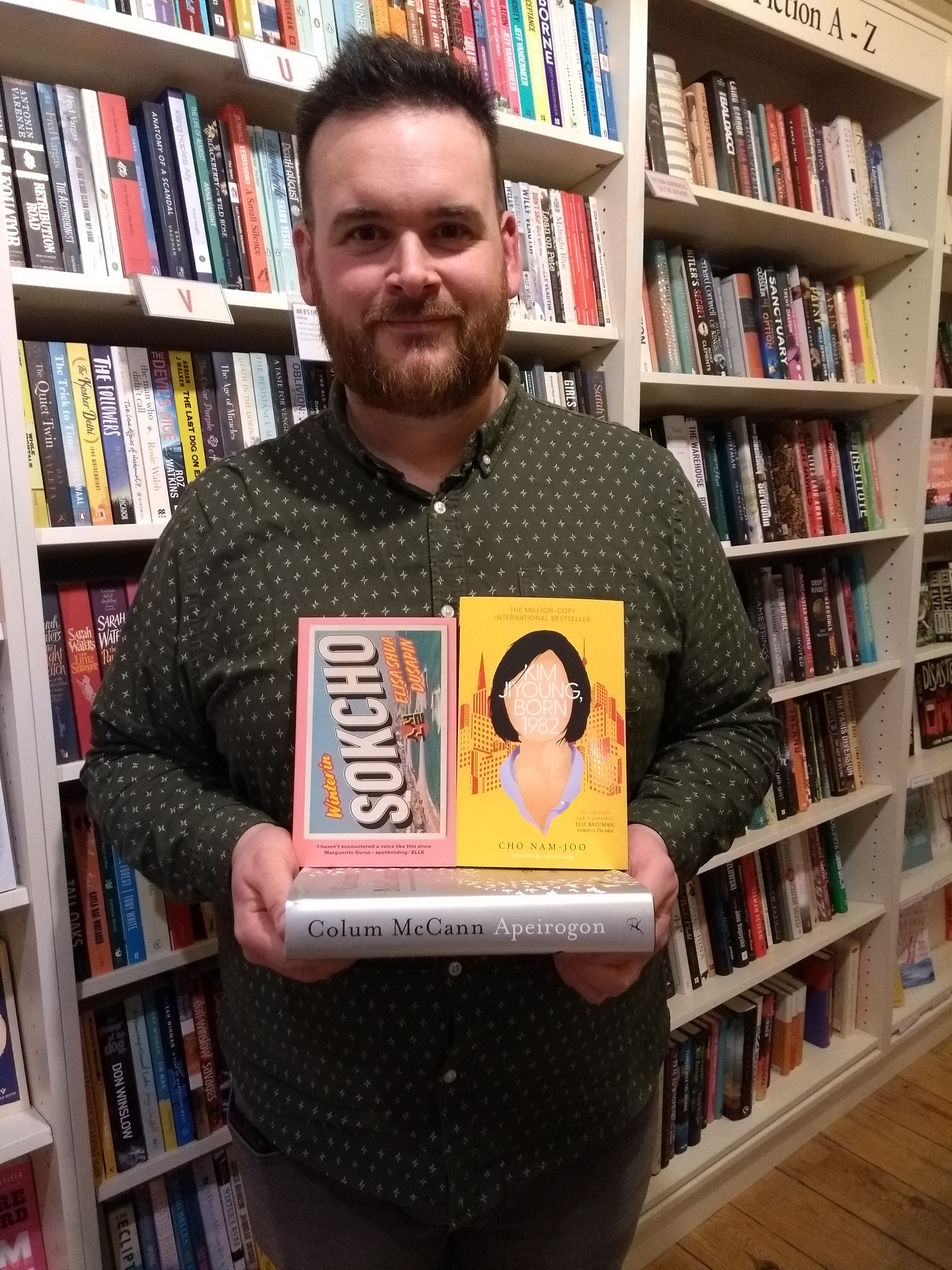This week’s blog starts out with a theme – new Korean fiction – but we end up somewhere else completely, so bear with me!
Kim Jiyoung, Born 1982 by Cho Nam-Joo (translated from Korean by Jamie Chang) is the perfect book for readers who enjoyed Sayaka Murata’s Convenience Store Woman. It is a biting feminist satire that sparked national debate about sexism upon its publication in South Korea, going on to sell well in excess of 1 million copies. We follow the story of Kim Jiyoung (a name which is essentially the equivalent of Jane Doe), a Korean woman in her mid-30s who appears to her family to be having a breakdown. She refuses to have a face of her own, instead impersonating those around her and acquaintances from her past. We then jump to the key moments in Kim’s life and explore the misogyny she faces at every step. It is provocative and brave but not as shocking as you may imagine, handling the issue of sexism in society with a skillfully light touch. While there are some pretty vile male characters in the book, Cho Nam-Joo shows us that misogyny is a stain on both sexes; something that causes everyone to suffer and holds men back, as well as women.
Winter in Sokcho by Elisa Shua Dusapin (translated from French by Aneesa Higgins) is a gorgeous, haunting tale from a brilliant new voice. An unnamed young French-Korean woman is working the winter season at a guest house in Sokcho, a holiday destination on the south side of the Korean DMZ. She meets a French comic-book artist and shows him the town in all its off-season dourness. All the while her boyfriend, an aspiring model who her mother thinks she should just hurry up and marry, is trying to convince her to escape this depressing town for the bright lights of Seoul. From this set-up, Dusapin explores issues of gender, expectation, culture, identity and alienation. The story is textured, multi-layered and hypnotic, the writing itself stunning. It’s dreamlike and meandering but punctuated by stark images; sometimes beautiful, other times grotesque. And there’s a brutal economy to the whole thing that I found utterly entrancing.
And here is where we head off down a different road! I couldn’t let this week slide by without alerting you to the brilliant Apeirogon, the new novel from Irish writer Colum McCann. It is a tremendous work of art; an original feat of storytelling; a humbling reading experience. McCann has created something new by recreating lots of old things. This is a novel in name only (the addition of A Novel to the title page must be tongue-in-cheek.) It is novel, history, politics, reportage, short story, nature writing, memoir, biography and more. And it is glorious. The story initially appears straightforward enough. It is the personal history of two men – both real living people – one a Palestinian, the other an Israeli, who have lost daughters to the ongoing conflict. Both have fought for their countries. Both are now leading members of a group seeking to bring peace to the region through talking, not with M16s. But that also only scratches the surface. McCann reinvents this narrative over and over again, unlocking new doors of intrigue, new stories, anecdotes, snippets of history. He is always building, always layering these men’s stories and those of the region, the conflict, the occupation, even the migrating birds.
The effect is quite stunning. You wonder where it’s going for a few pages and then suddenly, Wow! it all slides into place. And before you know it, you’ve moved on, seamlessly, to new topics, new characters, new stories. And yet always the same.
